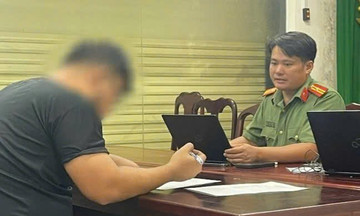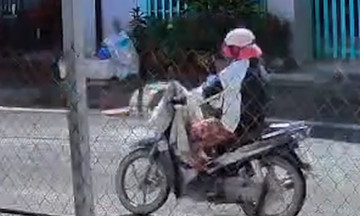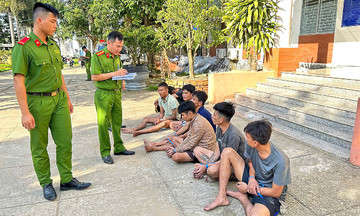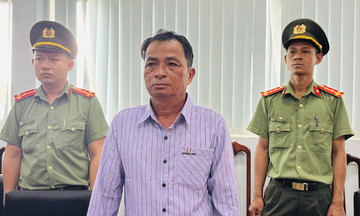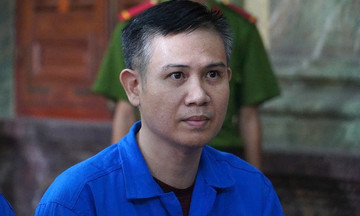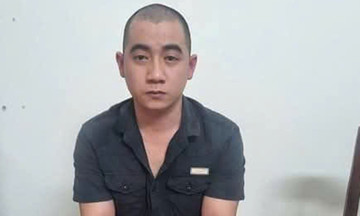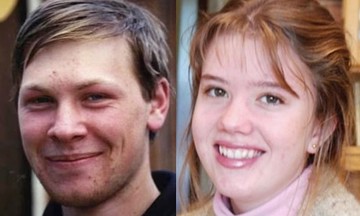16 months after a temporary suspension for further investigation, on 17/9/2024, the Phu Tho Provincial People's Court reopened the first-instance trial in the inheritance dispute between 11 siblings from a family in Thanh Thuy district.
Before the trial, presiding judge Nguyen Quang Vu reminded the parties that "ultimately, no one is more important than siblings." Each party had the right to speak and ask questions but should remain calm. "Do not ask questions or engage in discussions that are insulting, hurtful to family members, or contrary to the nation's fine customs," the judge requested. Both sides agreed.
According to the plaintiff, Nam, 75, he is the eldest son and represents seven siblings and the children of a deceased sibling, suing Dung, 66, the fourth brother.
In 1962, their parents acquired and used the 1,213 m2 plot from a fellow villager. In 1984, their parents gave Dung 138 m2 of this land to build his own house.
Their parents died without leaving a will. In 2020, Nam gathered his 11 siblings to discuss building an ancestral hall on the remaining 1,075 m2, but Dung announced that the entire 1,213 m2 plot was registered under his name, with a red book (land title) issued by Thanh Thuy district 15 years prior (2005), while their mother was still alive.
Nam argues that his brother's registration of the property without their parents' authorization, gifting, or family meeting is illegal. Seven other siblings authorized him to file the lawsuit, requesting that Dung retain only 138 m2, with the rest divided equally among the 11 siblings.
Dung asserts that in 1992, their father went to the communal People's Committee to transfer the entire 1,213 m2 plot to him. Since then, he has improved the land, built a surrounding wall, paid land taxes, used it consistently, and registered it in the land registry.
According to Dung, the entire inheritance has been settled, with no objections regarding the 1,213 m2 plot he occupies and owns. However, due to the recent "land fever," his siblings are "suddenly demanding their share," which he does not accept.
The case was previously tried by the same court, which ruled in favor of the plaintiff. Dung was granted the 138 m2 previously given to him. The remaining 1,000 m2, valued at 6.7 billion Vietnamese dong (VND), was to be divided equally among the 11 siblings.
Following Dung's appeal, the High People's Court in Hanoi overturned the first-instance verdict due to "serious procedural errors."
"The land should be under the eldest son's name."
After the appellate court's ruling, the Phu Tho Provincial People's Court reopened the first-instance trial in May of last year.
At that trial, Nam stated that he was not motivated by money, but by seeing Dung "secretly fill the pond with soil and cut down trees." The money and time he spent on the lawsuit "now exceed the land's value."
When asked, "If you intend to reclaim the land to build an ancestral hall, why not request a red book for the ancestral hall or shared ownership among the 11 siblings instead of putting it under your name?", Nam replied that as the eldest son, he would hold the title. "However, in the land title, I will request a note stating that this land is for ancestor worship, and no descendant can ever buy or sell it," he added.
In the lawsuit, Lan, the second child, is the only one siding with the defendant. When asked by the People's Procuracy, "Why are nine people supporting the eldest son, while you alone defend Dung? Is there something hidden?", Lan replied that she was not short of money and wasn't "defending" anyone.
Lan explained that before the lawsuit, the 11 siblings were very close and had the most successful businesses in the district. They often gathered and celebrated at Dung's house. Therefore, Nam's accusation that Dung "secretly filled the pond, cut down trees, built a wall, and occupied the land without anyone knowing" is false. "Everyone knew and supported Dung's improvements to the house and land," she said.
According to her, Dung has lived on this land for 30 years, with no siblings demanding a share, and "the conflict only arose in 2020 when land prices increased."
Both sides have negotiated several times. Dung agreed to keep half of the land, about 600 m2. The remaining area, according to the siblings' wishes, would be used to build an ancestral hall. "In my opinion, 600 m2 is more than enough to build an ancestral hall. But Nam's side refused," Lan said.
At today's trial, the Trial Panel continued to summon related parties, including: the communal People's Committee where the land is located, the Thanh Thuy District People's Committee, bank representatives, and notary public representatives, but they all submitted written requests for absence and sent written opinions.
The Trial Panel is continuing its work.
*Names of the parties have been changed.
Thanh Lam



